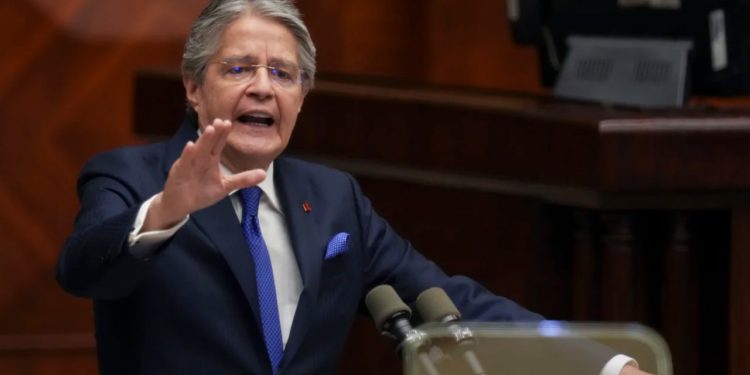NEWS CENTER – Ecuador’s embattled President Guillermo Lasso, who is facing a looming impeachment vote, has triggered a constitutional clause to dissolve government, a politically fraught move that could spark protests with the country already tackling a fragile security situation.
The Ecuadorian president invoked a procedure known as “mutual death,” whereby the opposition-led National Assembly is dissolved and snap elections will be called, according to a decree published on the website of the presidency. Lasso, who took office in 2021, is accused of interfering in the negotiation of a shipping contract related to the export of oil products. He has denied all allegations and claims they are politically motivated.
Lasso said his order for snap elections was the “best decision to pave the way for hope.”
He argued his decision was the way to stop political confrontation in the country, adding that the crisis cost Ecuador millions of dollars.
On Sunday, opposition lawmaker Virgilio Saquicela was re-elected as president of the Assembly with 96 votes while Lasso’s coalition holds 25 seats in the legislative chamber, a scenario that could give the opposition a chance to get enough votes to approve the impeachment.
The president’s decision to instate muerte cruzada means his government will remain in office until a new general election takes place in around six months.
But calls for his resignation have grown louder in recent months, as Ecuador’s opposition and influential federation of Indigenous organizations accused Lasso of negligence in a country engulfed by a cost-of-living crisis and high rates of criminal violence.
He will now have up to six months to govern by decree – without the input from lawmakers – before fresh general elections are held. The conservative neoliberal president issued the decree which disbands the National Assembly “due to a grave political crisis and national commotion”.
The move comes just hours after Mr Lasso offered an impassioned defence during the first day of his impeachment trial, in which he stood accused of having been aware of an embezzlement scheme involving a state-run oil transport company.




